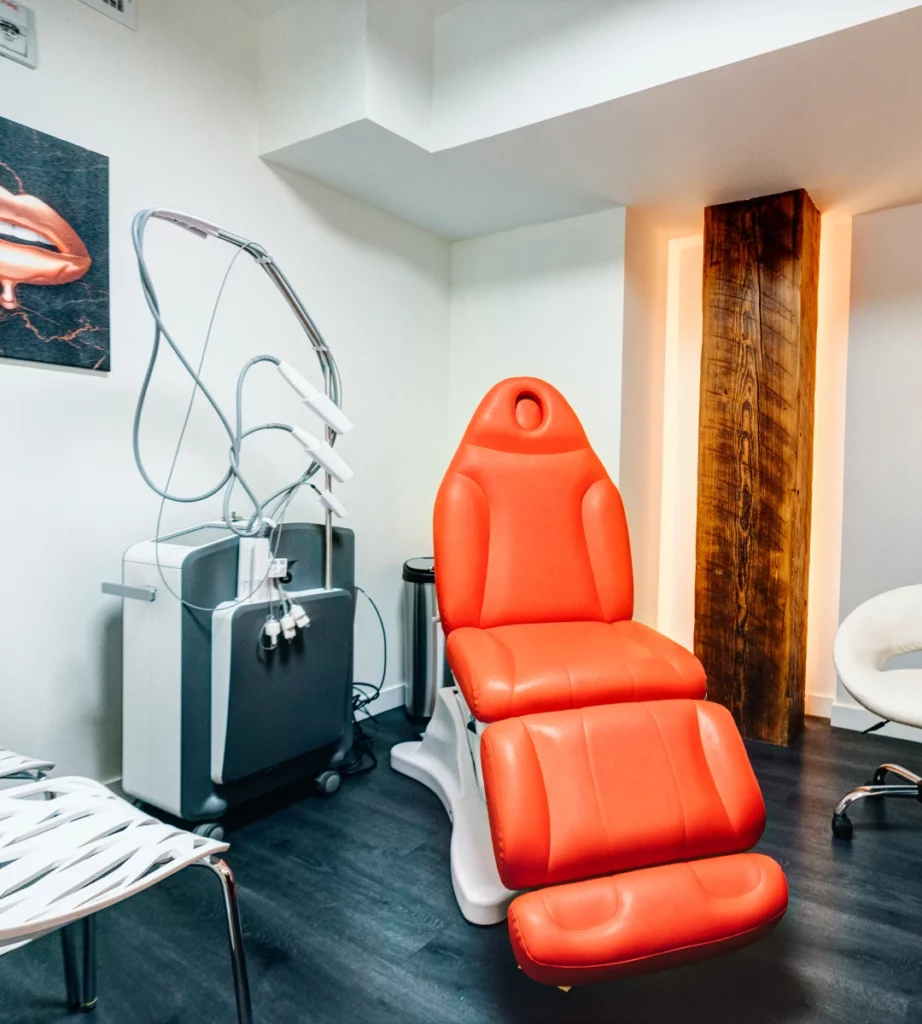What actually works when it comes to building collagen?
Dr. Muneeb Shah, board-certified dermatologist at Hudson Dermatology & Laser Surgery, offers a science-first look at what really helps maintain firmer, smoother skin as we age.
Drawing from his expert insights in a July 2025 feature in Women’s Health, this article explores proven strategies and medical perspectives on collagen preservation and repair.
Collagen: The Framework of Youthful Skin
Collagen is the skin’s most abundant protein and the foundation of its structure.
"As the most abundant protein in the dermis, collagen provides volume and works alongside elastin to support skin's firmness, elasticity, and youthful appearance," explains Dr. Shah
But our collagen reserves don’t last forever. As early as our twenties, production begins to decline. We lose about 1% of collagen each year, and by our forties and fifties, visible signs like sagging, wrinkles, and skin fragility begin to show.
What accelerates this process? According to Dr. Shah, the culprits include sun exposure, environmental pollution, and free radicals that degrade collagen. Lifestyle choices like smoking, high-sugar diets, chronic stress, and poor sleep further accelerate the breakdown.
"Glycation—a reaction between sugar and proteins like collagen—produces advanced glycation end products (AGEs), which make collagen stiffer and more prone to breakdown," he says.
Proven Topicals: What Actually Stimulates Collagen?
The skincare aisle is full of products that promise collagen regeneration, but only a few ingredients are clinically proven to help.
Retinoids
These vitamin A derivatives are the gold standard for collagen stimulation. “They activate fibroblasts to produce more collagen and inhibit enzymes that break it down,” says Dr. Shah. Retinol, adapalene, and prescription-strength retinoic acid are commonly used to improve skin firmness and texture over time.
Antioxidants
Vitamin C is essential for collagen synthesis and also protects existing collagen from oxidative damage. Additional antioxidants like niacinamide, ferulic acid, and vitamin E help neutralize free radicals and support skin repair.
Peptides
These short-chain amino acids act as messengers to boost collagen production. Matrixyl, for example, can signal the skin to make more of its own structural proteins.
Why Sunscreen Is Non-Negotiable for Your Collagen
The first rule of collagen preservation: protect what you have. “UV radiation is one of the biggest culprits behind collagen breakdown,” notes Dr. Shah. Daily use of a broad-spectrum SPF 30 or higher prevents sun-induced collagen damage, helping preserve firmness and elasticity over the long term.
In-Office Treatments That Really Work
Topical products are important, but in-office procedures take collagen regeneration to the next level.
Laser Resurfacing
Non-ablative and ablative fractional lasers like Fraxel stimulate controlled skin injury that activates collagen-producing fibroblasts.
Microneedling
Tiny needles penetrate the dermis to trigger healing and collagen formation along with smoothing out fine lines and wrinkles.
Ultrasound Devices
Technologies like Ultherapy use focused heat energy to remodel collagen deep within the skin without downtime.
Injectables
Biostimulators like Sculptra and filler biostimulators like Radiesse can increase collagen production over time, offering long-term volume and firmness.
Lifestyle Habits That Support Collagen
Dr. Shah emphasizes a full-circle approach to skincare. That includes not only topicals and treatments, but also nutrition and lifestyle.
- Diet: While eating collagen-rich foods like bone broth won’t directly rebuild facial collagen, nutrients like vitamin C, zinc, and amino acids support the body’s own synthesis.
Avoiding high sugar intake helps reduce glycation.
- Supplements: Hydrolyzed collagen peptides and Verisol collagen have some evidence for improving elasticity and reducing fine lines.
While Dr. Shah doesn’t treat supplements as a cure-all, he acknowledges that well-formulated products may offer additional support.
- Stress Management: Chronic stress can increase cortisol levels, which degrade collagen.
Good sleep and self-care are more than just feel-good habits—they’re part of a healthy skin routine.
The Takeaway On Collagen
Collagen loss is inevitable, but there’s a lot you can do to slow it down and even reverse some of the effects. Dr. Muneeb Shah’s expert advice centers on evidence-based practices: protect, stimulate, support, and maintain. With smart skincare, professional treatments, and daily habits, firmer, more resilient skin is well within reach.

Medical & Cosmetic dermatology in Hudson Yards
From advanced medical treatments to cutting-edge cosmetic procedures, Hudson Derm offers comprehensive care tailored to your skin’s needs—all in the heart of Hudson Yards.
